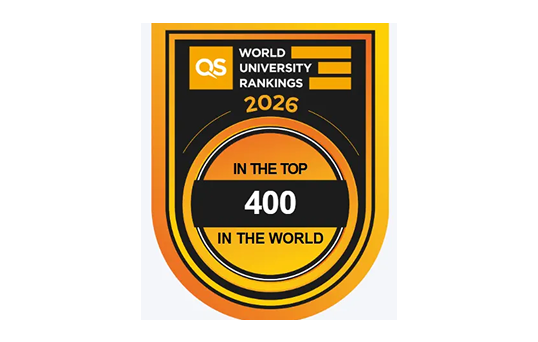

Master of Science in Psychology (Conversion)
MSc (Online)
If you are fascinated by human behaviour and looking to pivot into a psychology-related field, our flexible online MSc Psychology programme offers a powerful first step. Designed for learners from any academic background, this part-time degree builds the knowledge and critical thinking needed to pursue new opportunities in psychology and beyond. As a conversion programme, it is specifically designed for those without a BPS-accredited undergraduate degree in Psychology and is not intended for those who already hold one.
Study fully online with expert support through Aston’s immersive Digital Campus and reimagine what your future could look like.

January, May, September
Apply now for any date

Funding options include UK government loans for eligible students, scholarships, and flexible payment plans. A deposit is required to secure your place

Two years (part-time)
Flexible distance learning

Total tuition: £11,000 - no hidden costs
Why choose this programme


No psychology degree? No problem: Whether your background is in arts, sciences, or any other field, Aston Online’s Masters in Psychology lets you transition confidently into psychology and related careers even if you didn’t study it at an undergraduate level.
Join a top-ranked programme with proven career success: Ranked 7th in the UK for graduate prospects in psychology (Complete University Guide, 2025). Aston University is your launchpad to real-world professional roles and rewarding career opportunities.
Sharpen your research and problem-solving skills: Build essential expertise in research methods, critical thinking, and professional ethics to better understand human behaviour and make a meaningful difference in people’s lives, workplaces, and communities.
Boost your employability with in-demand skills: Gain the ability to analyse, synthesise, and apply psychological knowledge with confidence. Our programme equips you with practical, work-ready skills, like critical thinking and problem-solving, so you can stand out as a thoughtful, adaptable professional ready to make a meaningful impact both within and beyond psychology.
Globally accessible with flexible admissions: Wherever you are in the world, Aston University Online makes higher education within reach, with flexible study, monthly payment options, and non-standard entry routes that recognise the value of varied professional and educational experiences.
Study on your terms – anywhere, anytime: Enjoy the freedom of fully online learning with no fixed schedules or compulsory live sessions. Focus deeply on one module and assessment at a time, perfectly balancing your studies with work and life.
Become part of a supportive, global learning community: Learn alongside a small, close-knit cohort with personalised guidance from expert tutors. Experience a welcoming, inclusive environment where you’re never studying alone.
Meet the programme director
Welcome to the MSc Psychology programme with Aston University Online! You are about to embark on a comprehensive academic journey that will equip you with a deep understanding of human behaviour, from foundational principles to advanced research and applied practice.
This conversion programme is specially designed for those without a BPS-accredited undergraduate degree in Psychology and is not intended for those who already hold one. The MSc Psychology programme will provide you with a sound knowledge of the core areas within psychology and develop your expertise in advanced research methods. All of our programmes are delivered online, offering you the flexibility to study at your own pace while benefiting from Aston’s commitment to high-quality teaching and student support.
We look forward to supporting you throughout your studies and helping you achieve your goals in the fascinating field of psychology.


Programme overview
Understanding people starts with asking questions. What makes us who we are, and behave the way we do – in our relationships, our decisions, our struggles? If you're driven to explore these questions and apply psychological insight to real-world challenges, our online MSc Psychology conversion programme is your next step. This degree is designed for those who want to turn their interest in human behaviour into a new professional direction or deeper expertise.
You’ll explore core areas of psychological science, including cognitive, developmental, social, and biological psychology, gaining insight into both typical and atypical human functioning. With the support of expert tutors, you’ll also complete an independent research project on a topic that matters to you.
As you study, you’ll build sought-after skills in critical thinking, research, and communication, alongside a rich understanding of people and behaviour. These abilities are highly valued by employers and can open doors to meaningful roles in mental health, education, HR, marketing, public services, and beyond.
Delivered fully online and part-time, this programme is designed to fit around your life, meaning you can manage studying around other commitments such as work and family. You’ll learn alongside a global student community and gain access to Aston University’s extensive digital library, featuring leading publications and the resources you need to deepen your knowledge, support your research, and stay current with advances in the field.
Whether you want to change careers, build on your previous experience, or simply understand people better, this MSc gives you the knowledge, confidence, and flexibility to take your next step in psychology. Psychology touches every aspect of life – and this programme gives you the tools to apply it where it matters most.
What you will learn
Core psychological concepts: Build foundational knowledge across key areas of psychology, including cognition, development, and behaviour.
Research skills and methodologies: Learn how to conduct and analyse psychological research using professional tools and methodologies.
Biological basis of behaviour: Explore the biological and neurological underpinnings of behaviour and mental processes.
Applied psychology in society: Understand how psychological theories apply to real-world challenges across health, education, business and society.
Specialist research project: You will also conduct a research project in a specialist area with support from our expert psychology team.
Flexible payment plans and funding options

We are ranked in the top 5% of evaluated institutions
QS World University Rankings 2026
It’s been an exciting time at Aston University, with amazing new achievements that highlight our teaching excellence, outstanding student outcomes, and strong performance in global and UK rankings. Here are just a few highlights:
- Aston University is now ranked in the top 5% of global universities (top 5% evaluated institutions, QS World University Rankings).
- Aston University has been named the University of the Year for Student Success 2025 in the new Daily Mail University Guide.
- Aston University is 2nd in the country for Social Mobility (Higher Education Policy Institute).
And that’s just the beginning. Watch our video to discover more.
When I discovered a couple of years ago that Aston had created online programmes for those who wanted to continue their education, but needed the flexibility to do so, I was absolutely thrilled. I work full-time so this was perfect me.


Career prospects
Our MSc Psychology conversion degree is designed to thoroughly prepare you for a successful career in a wide range of academic, industry, and healthcare settings. Upon graduation, you’ll be equipped to pursue diverse career paths or continue advancing your research with a PhD for those aiming for an academic career.
This degree also offers excellent opportunities for further professional development. You’ll be positioned to specialise in areas such as health psychology, clinical psychology, occupational psychology, forensic psychology, or neuropsychology, ultimately working towards becoming a practitioner psychologist.
Career prospects you can look forward to:
Policy advisor/Officer: Apply behavioural insight to shape public policy, improve decision-making, and design services that better meet community needs.
User experience (UX) researcher: Conduct user research to understand behaviour, improve digital experiences, and inform the design of user-centred products and services.
Market analyst: Analyse consumer behaviour and market trends to help organisations make informed decisions about products, services, and strategy.
Careers advisor/Employability coach: Use psychology-informed approaches to help people plan and manage their careers – often in education or local authority settings.


Programme structure
This programme is studied over two years part-time. In the first year, you’ll study three modules, each worth 30 credits. In the second year, you’ll complete one 30-credit module and a 60-credit research module. Each credit is equivalent to 10 learning hours, meaning a 30-credit module reflects 300 hours of learning, while the research module represents 600 hours.
Modules
Cognition, development, and neuropsychology'%3e%3cpath%20d='M11%2013H5V11H11V5H13V11H19V13H13V19H11V13Z'%20fill='%231C1B1F'/%3e%3c/g%3e%3c/svg%3e)
30 credits
This module provides an overview of key issues in cognition, language, and communication, with emphasis on how these faculties are changed through the course of normal human development, as well as through the cognitive impairments that arise following brain damage. You will develop a more nuanced appreciation of research methods used in these fields and of what atypical brain functioning can tell us about normal human cognition.
Psychological research methods and data analysis'%3e%3cpath%20d='M11%2013H5V11H11V5H13V11H19V13H13V19H11V13Z'%20fill='%231C1B1F'/%3e%3c/g%3e%3c/svg%3e)
30 credits
This module provides you with an understanding of a range of common psychological research methods, providing practical experience in applying some of those methods to original data. It also familiarises you with the appropriate qualitative statistical analyses for a variety of research designs that use these methods, through providing practical instruction in the use of statistical software for data processing, data management, graphical display and analysis.
Critical social psychology'%3e%3cpath%20d='M11%2013H5V11H11V5H13V11H19V13H13V19H11V13Z'%20fill='%231C1B1F'/%3e%3c/g%3e%3c/svg%3e)
30 credits
This module aims to consolidate theoretical and methodological knowledge about contemporary social psychology. You are encouraged to approach social psychology from a critical perspective, to engage with qualitative methods of data collection and analysis, and to consider the role of objectivity and subjectivity within research.
Individual differences and employment'%3e%3cpath%20d='M11%2013H5V11H11V5H13V11H19V13H13V19H11V13Z'%20fill='%231C1B1F'/%3e%3c/g%3e%3c/svg%3e)
30 credits
The module covers methods with which Individual Differences are and have historically been studied. You are guided to evaluate these approaches, their ethics, and to consider real-world applications of Individual Differences research. Emphasis is placed on psychological literacy and professional skills as key individual factors relevant to psychology careers and on considering the role of psychology in different professions and employment processes.
Empirical research project'%3e%3cpath%20d='M11%2013H5V11H11V5H13V11H19V13H13V19H11V13Z'%20fill='%231C1B1F'/%3e%3c/g%3e%3c/svg%3e)
60 credits
This module will take you through the process of developing, running, and writing up a research project on a psychological topic. You will develop and demonstrate individual research skills, including study design, ethics, data collection, data analysis, and report writing.
Learning outcomes
Module 1
- Demonstrate an understanding of key concepts in quantitative and qualitative research methods, using appropriate terminology and the ability to critically evaluate different study designs and methodologies appropriately.
- Demonstrate an understanding and appropriate use of a range of descriptive and inferential statistics.
- Understand and be able to conduct qualitative and statistical analyses, demonstrating a conceptual understanding of why these analyses are appropriate techniques.
- Communicate the method and results of qualitative and quantitative psychological research in a scholarly way, using a clear and appropriate format.
Module 2
- Demonstrate a breadth and depth of knowledge about cognitive, developmental, and neuropsychological influences on human psychology.
- Demonstrate systematic and evidence-based understanding of and ability to critique theories and empirical findings in cognitive, developmental and neuropsychology.
- Critically appraise and evaluate methodologies used in these fields, and deal with the complexities and contradictions in the research literature.
- Identify, analyse and communicate the features of different types of cognitive impairments, and how these are diagnosed.
Module 3
- Critically discuss and evaluate social psychology theory, concepts, and frameworks and their contribution to the field.
- Critically evaluate and communicate the suitability of qualitative methods for answering social psychology research questions.
- Design and critically evaluate interview questions, and implement these in a semi-structured one-to-one interview.
- Apply a qualitative method of analysis to analyse interview data, reflecting critically on the role of researcher subjectivity in the data collection and analysis processes.
Module 4
- Demonstrate a critical awareness and systematic understanding of conceptual and historical issues in Individual Differences research, and in how psychologists have influenced the development of specific professions.
- Critically evaluate and interpret findings from Individual Differences research in ways that reflect professional norms.
- Demonstrate a depth of understanding and ability to articulate and reflect on the key competencies that psychology graduates can bring to the workplace.
- Communicate and reflect on their competencies and experiences professionally, via modes commonly used in employment contexts.
Module 5
- Plan, develop, conduct, and manage a research project as a lead researcher, in a way that demonstrates a firm appreciation of ethical issues.
- Write a research protocol and appropriate study documentation to receive ethical approval to carry out the research.
- Communicate and liaise effectively with relevant stakeholders to undertake the research (e.g. supervisors, peers, recruitment agencies, participants).
- Competently communicate the research findings in a scholarly way through a written report.
The programme aims to:
- Deliver flexible, engaging online learning designed to support adult learners and career changers.
- Develop your ability to evaluate psychological literature, conduct ethical research, and communicate effectively.
- Equip you with professional skills and reflective insight relevant to a wide range of roles.
- Support your progression into further training in psychology or related sectors.
*We may update our programmes to reflect best practices and academic developments. If we do, we’ll let you know of any changes at the earliest opportunity by updating our programme webpages. If you have already received an offer, we’ll write to you directly to let you know of the changes.
Unsure if you qualify?
Check your eligibility now or speak with our admissions team about alternative entry routes.
Is this programme right for you?
- You are curious about human behaviour and mental processes and want to apply psychological knowledge to your current or future profession.
- You are motivated to understand and support others through psychological insight, whether in personal, professional, or community settings.
- You are seeking practical and research skills that can support postgraduate training or open roles within or beyond the field of psychology.
- You don’t have a BPS-accredited Psychology degree and want a pathway into the field through a conversion degree.
- You value flexibility and need a fully online, part-time programme that fits around work, family, or other responsibilities.
- You are looking to build key transferable skills and expand your career options across a range of industries.
Entry requirements
We carefully design our entry criteria to ensure every student begins their academic journey with Aston Online equipped with the foundational knowledge, potential, and personal qualities needed to succeed in their chosen programme. Our standards are not merely a threshold for entry; they are set to support student success and uphold the quality of the learning experience. Each student joins an intellectually challenging, personally rewarding programme, aligned with employers' expectations and the global job market.
Standard entry requirements
You will need one of the following:
-
A UK 2:2 (lower second-class honours) degree
-
An equivalent international degree recognised by Aston University
You will need to provide:
-
A copy of your bachelor's degree and transcripts (translated to English if necessary)
-
Your curriculum vitae (CV)
-
A professional reference
-
Your ID
-
Proof of English language (if applicable)
Non-standard entry routes
We take a holistic approach to evaluating applications, considering both your academic background and professional experience. If you don’t meet the standard entry requirements, you may still be considered if you:
-
Can demonstrate strong professional achievements or relevant qualifications
-
Have at least three years of relevant work experience
You will need to provide:
-
A personal statement detailing your motivations for undertaking this programme and how your background, qualifications, and experiences will help you meet its demands
Get in touch with a Student Advisor to check if you're eligible to enrol: enquiries@astononline.ac.uk.
International students
Every year, students from over 120 countries choose Aston, bringing with them a wide range of international degrees and qualifications. We recognise this diversity while maintaining rigorous academic standards, reflecting the global business landscape our graduates lead in.
A Student Recruitment Advisor can assess your degree equivalency on your behalf as part of the application process. You can also explore recognised qualifications by region, including Africa, the Americas, Asia, Europe, and the Middle East, here. For personalised advice before applying, contact our Admissions Team at enquiries@astononline.ac.uk.
English language requirements
Applicants whose first language is not English must provide evidence of a recognised English language qualification, taken within the last two years and accepted by Aston University. If needed, we can provide an internationally accredited online English Language Assessment, which you can discuss with your Student Recruitment Advisor during the application process.
We accept a wide range of English language qualifications, including:
-
IELTS Academic and IELTS Academic Online
-
IELTS One Skill Retake
-
TOEFL and TOEFL iBT
-
Oxford ELLT (Global and Digital)
-
Pearson Academic (PTE)
-
Password Test
-
Language Cert International ESOL SELT
-
Kaplan Test of English (KTE)
-
Cambridge Advanced Test (CAE)
-
Cambridge Proficiency Test (CPE)
Find out if you qualify
If you have any questions about your eligibility or the application process, please get in touch with the Aston Online Admissions Team:
Email: enquiries@astononline.ac.uk
Call: +44 (0) 121 824 6374
Our office is open Monday to Friday, 09:00 - 17:00 GMT
FAQs
What are the benefits of studying for an MSc Psychology online at Aston?
Our fully online, part-time programme offers the flexibility to study anytime, from anywhere in the world. Programme materials are available 24/7, so you can fit your studies around work or personal commitments. This programme develops a highly transferable skill set and provides a broad understanding of human behaviour and the real-world applications of psychology.
How is the online MSc Psychology programme different from the on-campus version?
While the online and on-campus programmes share the same core content, the online MSc is delivered part-time and structured for flexibility. Key benefits of studying online with Aston include:
- Flexible, self-paced learning to support work-life balance
- A curriculum designed specifically for online delivery, with interactive and engaging content
- Affordable payment options, including monthly instalments and “earn-as-you-learn” opportunities
- Access to dedicated online tutors and student support services
How can I personalise my learning journey to fit my career goals?
Boost your employability by gaining practical, work-ready skills such as critical thinking, problem-solving, and the ability to confidently analyse and apply psychological knowledge, so you stand out as an adaptable professional.
How will I be assessed?
You will be assessed through a combination of formative and summative activities that reflect real-world professional contexts. These include:
- Short tasks and knowledge checks to monitor your understanding as you progress.
- Tutor-graded assessments such as multiple-choice and short-answer questions, essays, lab reports, case studies, presentations, and portfolio work.
- A final-year independent project report
All modules provide detailed assessment rubrics from the outset, so you can focus your efforts and track your progress effectively.
What happens if I decide to withdraw?
If you withdraw from your studies, you may still have fees to pay. Please check the fee liability in section 4.7 of the Tuition Fee Charging Policy here.

Download brochure
Don’t hesitate to reach out! Our friendly admissions team is ready to answer your questions and offer personalised guidance on eligibility and funding options.







